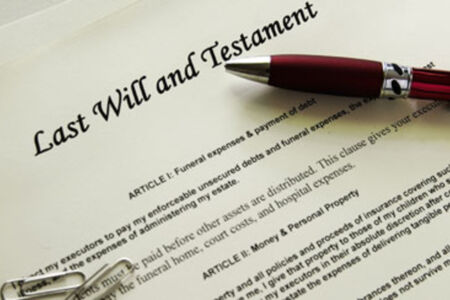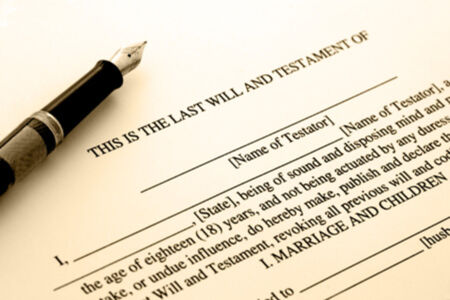Prescriptive Easement
Question: A neighbor is stating that he has the right to park cars on my land since I allowed him the courtesy of crossing my land to get to his garage. What can I do? Help! Need input regarding a prescriptive easement. I have no problem letting my neighbor cross my land in Berrien County to access a garage on his, but now he wants to park his kid's cars on my land. He is stating because he has done it in the past, he has a right to do it now. Is this true? Any input would be appreciated.
Answer: It sounds like you have found yourself in a situation where a pushy neighbor has forced you to hire an attorney. I would recommend that you see one and have the attorney send the neighbor abusing your generosity (allowing access over your property to his garage) a letter to stop the use of your property to the fullest extent possible. Below you will find an article from the Michigan Lake and Streams Association on prescriptive easements. Good Luck.
Adverse Possession and Prescriptive Easements: A Prescription for Adversity?
Nearly every riparian property owner has heard the phrases squatter's rights, adverse possession and prescriptive easement. But what do they mean? There seems to be a great deal of confusion out there regarding these concepts. In general, if you use the land of an adjoining or nearby property owner in a certain fashion for in excess of 15 years, under certain circumstances, you can claim title to that land or an easement over it. The phrase "Squatter's rights" is a common vernacular for the legal doctrine of adverse possession. Adverse possession is a process whereby one property owner can potentially claim actual title to certain adjoining property.
In order for someone to successfully claim title to property which was not previously theirs, two things must occur. First, the person must have used the adjoining property of another for 15 years or more in a fashion which was open and notorious (i.e., in a way which was regular and highly visible), exclusive (it cannot have also been used concurrently during that 15 years by the true owner of the property), hostile (not meaning nasty or mean, but without the permission of the true landowner) and under claim of right (you were treating the property as your own and you are an adjoining property owner). Second, someone claiming property through adverse possession cannot actually obtain true title to the property until a successful court action awards such title.
A prescriptive easement is similar to adverse possession, but instead of obtaining exclusive title to a strip of land, one merely obtains an easement for a particular use. For example, suppose a neighbor utilizes a driveway across your property for in excess of 15 years without your permission. Or alternately, the owner of a non-lakefront lot across the road uses a path down to the lake across your property and maintains a dock on your lakefront at the end of that path for over 15 years. Under certain circumstances, your neighbor could obtain a permanent prescriptive easement for such uses in court if the neighbor proves the same general elements which are required for adverse possession (i.e., lack of permission, open use for over 15 years, etc.).
Prescriptive rights can also sometimes be utilized by someone to expand existing easement usage rights. For example, assume that a back lot owner has an express easement to utilize a riparian property for access purposes only to a lake the original easement rights did not include the right to dockage, permanent boat moorage, sunbathing, etc. If the beneficiary of that easement utilizes the easement for sunbathing, one dock and one boat for over 15 years without the permission of the underlying property owner, the back lot owner might gain the right to continue those activities permanently pursuant to court action under the theory of expanded rights by prescriptive easement.
Adverse possession and prescriptive easement controversies tend to arise more frequently with regard to lake property than other property. Why?
Probably because many lake lots are small, were created many years ago, and have seemingly overlapping boundary lines. Given that many riparian lots are small and increasingly valuable, every inch of waterfront property is important. Battles involving alleged prescriptive easement rights to lakes are also increasing around the state. The owners of back lots are using this legal doctrine to access lakes where no express easement exists or to expand the usage rights for lake access easements which were for access purposes only. Finally, for whatever reason, many people tend to be more emotional and territorial regarding waterfront property boundaries than most other lands.
Contrary to popular myth, it is not easy to obtain title to a piece of land by adverse possession or an easement via prescriptive easement.
Nevertheless, property owners should be on guard if it appears that other landowners in the area are attempting to use property in such a way as to commence the 15-year adverse possession or prescriptive easement time clock. That claim can be broken prior to the running of the 15-year time limit by either stopping the adverse use of the property or granting express permission for such use (which will remove the "hostility" requirement).
Nevertheless, since this is a relatively complex area of real estate law, you should consult with your own attorney immediately if you believe someone is attempting to accrue an adverse possession or prescriptive easement right to your property. This is certainly one area where it is not wise to let sleeping dogs lie, since delay could permit someone to pass the 15-year time hurdle.
Attorney: Mark Miller








